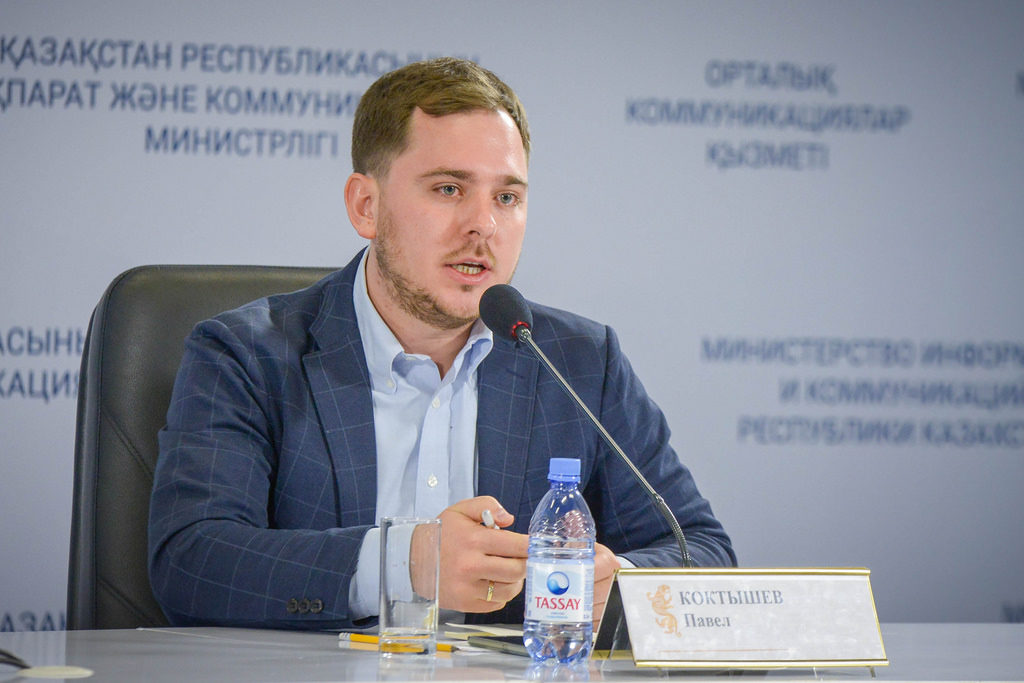ASTANA – Astana Hub envisions developing from a country-level support for start-up projects to a regional innovation centre for the entire global IT community, said Pavel Koktyshev, Zerde Holding Deputy Chairperson of National Information and Communication.
Many start-ups, even the most promising ones, must often terminate their work in the very early stages, as they have difficulty finding more experienced mentors and community and financial support. Thus, state support tools like Astana Hub are essential to create the right ecosystem and start-up culture.
“A startup is the beginning of entrepreneurial history. [It is] a stage when a business model is only groped, when an entrepreneur explores the relevance of the idea and the reaction of the client,” said Koktyshev.
One of the hub’s main achievements together with the state is the law on venture financing, which entered into force July 21. With the new law, Astana Hub is gaining more popularity among foreign participants, as it eased visa procedures and employment regimes for them in the fledgling technopark. In addition, the government is working on a new draft law that should exempt foreign participants from certain taxes.
The hub has been actively promoted at international IT conferences, forums and exhibitions. This year, its start-ups visited the TIBO exhibition in Minsk and were invited to the Echelon Asia Summit in Singapore.
“This is how the guys get acquainted with the international ecosystem, assess the reaction of the external market, establish networking and present their business model. Three start-ups from Astana Hub entered the top 100 best start-ups in Southeast Asia,” he noted.
The hub also signed a memorandum with Techstars, the largest American seed accelerator, and has worked with the European Business Angels Association since the beginning of the year. The technopark has established connections with other innovation ecosystems in Belarus, Kyrgyzstan, Russia, Ukraine and Uzbekistan.
Koktyshev sees the amount of investment received as the hub’s key performance indicator, adding the centre expects to attract 67 billion tenge (US$182.8 million) by 2022. The scale of performance, however, is still rather uncertain.
“We will be able to evaluate the extent of the achievable result a little later, when we understand how effective the current tools of the hub are,” he said.
The first graduates attracted 28 million tenge (US$76,413) in three months of acceleration, while the second class drew approximately 60 million tenge (US$163,742).
Astana Hub will summarise the results of its first year’s activity in February.
“We were faced with starting tasks [such as] to launch programmes for the development of IT start-ups, form a platform for the IT community, improve the legislative framework, start working with international projects, launch infrastructure and launch at least 33 start-ups. I can say that now we have already closed many tasks and some have surpassed them,” said Koktyshev.
The third and the final acceleration programme for this year will be launched on November. To date, the hub has approved 146 start-ups, five times more than the expected.
Several projects developed at the hub, such as Kompra and Moi Uchet (My Account), have had outstanding results. The former is a service that allows three minutes to find all the information about counterparties using 40 parameters and thus check for reliability. During the acceleration, the team increased sales by 300 percent, almost doubled the price for the service and is rapidly gaining customers.
My Account is a tax accounting system for entrepreneurs who use a special tax regime based on a simplified declaration. During acceleration, the project increased the price of services by 2.5 times, attracted 133 new customers and added end-to-end analytics. As a result, the influx of new registrations increased by 26 percent, he noted.

